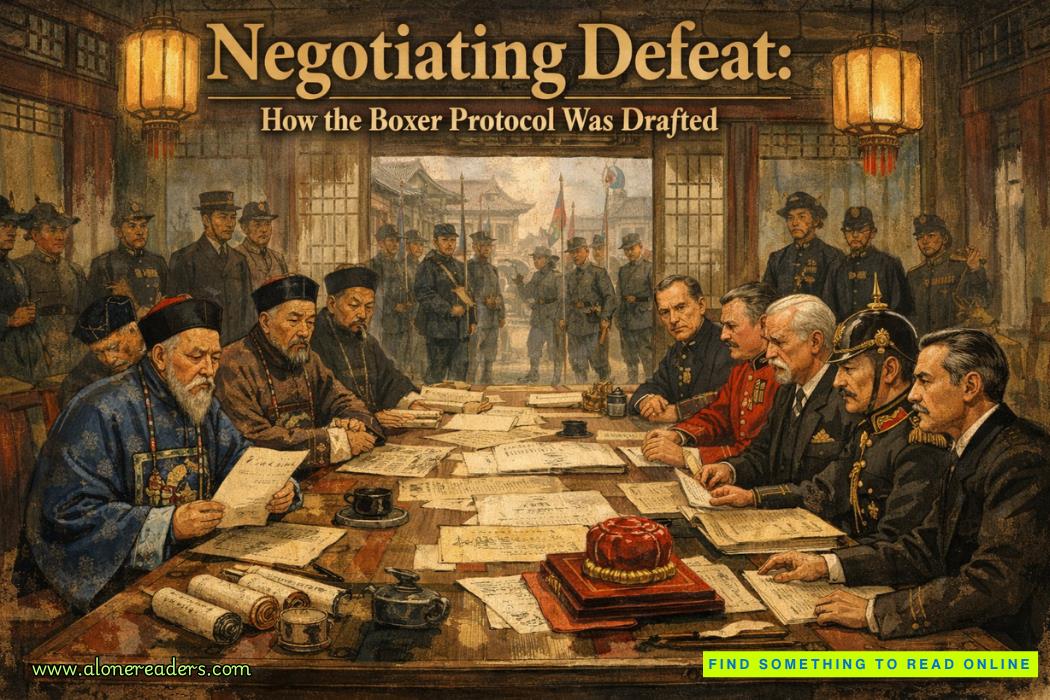We would sit in her living room, a tray with two porcelain cups of tea between us, nibbling a small plate of chocolates that Giselle had arranged with care. On sunny days, the shutters would be ajar, so that the daylight cast a beautiful glow over the room. Materials that I had always believed to be gray now appeared almost opalescent. And Marthe’s face, too, seemed to change with the sunlight. Illuminated from the shadows, it was easier to see the faint lines by her eyes, and the softness of her skin no longer tight against her cheekbones. But, still, like a well-seasoned actress, she knew her best angles and she used them to her full advantage.
During the course of my visits, she had yet to reveal how she came to sit for the large portrait. Nor had she mentioned how she came to own her luminous pearls with the emerald butterfly clasp. Yet, for weeks she had managed to keep me enraptured. I held on to her every word, anxious for the next installment of stories. She came alive when she spoke, her neck grew slightly longer from beneath her collar, and her eyes grew wider. And though she used her hands to emphasizecertain elements, she never raised her hand further than her waistline and her fingers never opened. She used them a way a bird might use its feathers, to give her words flight.
When I was in her company, it was easy for me to understand how seductive she must have been at the pinnacle of her youth. But I had yet to figure how she sustained her financial independence after all these years.
She did not appear concerned about money. Somehow, she had managed to prevent the struggles of the outside world from penetrating her apartment. There were luxuries aplenty. Not just in the furnishings and artwork of her living room, but in the smaller details like the full-time housemaid, the expensive chocolates, and the abundance of bouquets of fresh flowers. Even her perfume smelled regal and refined.
In contrast, my father continued to work even longer hours as he, like the rest of France, struggled to make ends meet. On the streets, people mirrored the country’s depression on their faces. Their expressions tight. Their clothes more and more somber. The newspapers screamed headlines of factory strikes and the growing rise of Facism throughout Europe.
But my grandmother’s apartment offered a respite from all that. It remained my refuge, a place where I could lose myself for a few hours of the day in the cocoon of another person’s life story, one that was so much more interesting than my own. Those hours were like velvet to me. Stories spun of silken thread, her own light and darkness, unabashedly drawn.
When I exited the large oak doors of her apartment building, however, the chill outside seemed even more brutal than before I had arrived. And the beauty of her apartment made the lack of ours more apparent. I began to write on the days I did not see her, in a café not far from our house. I’d bring my notebook and pen and sit beside the glass, my imagination trying to conceive a way of weaving what she told me into a book. I could envision her as a young girl with herbasket of laundry, her worn gray dress and her apron. I could then see her as a young woman pulling a needle through yards of chiffon, as well as her singing on the stage, her face illuminated by the gaslights, then later cloaked in the shadow of Charles’s carriage.
I had never once stepped outside Paris, yet I could imagine with ease the pale green of the water in Venice. The plush banquettes of Caffè Florian, where Charles baptized her with her new name.
And then I would return home. I’d walk up the narrow steps to our apartment on the Rue des Saints-Pères. I’d find the living room with my mother’s needlepoint pillows. The small wooden dining table. I’d light the stove and boil myself a cup of tea.
***
In our small, modest apartment, my mother’s bookshelves resembled the intricate tiles of a fortress. Each one tightly stacked against the other. And since her death, I had looked at each book as though it contained pieces of her soul, stories that had nourished her during the course of a too-short life.
My own life was rooted in that bookshelf as well. My first childhood memories were on its lowest shelves, where the picture books she had read to me were placed. And beside those were my first chapter books likeLes Aventures d’un Petit ParisienorLe Dernier des Mohicansthat she had encouraged me to read when we curled beside each other in her bed.
Her taste in literature was both varied and mysterious to me. She enjoyed Dostoevsky as much as she did Flaubert. But her library also contained secrets to a past that I, as a young child, had failed to understand.
On the top shelf, she had books that she instructed me, when I was no more than seven years old, not to reach for without her help. “They are rare and valuable,” she cautioned me one afternoon. “If you’re curious, let me know and I will take them down for you.”
I had, of course, asked to see them immediately. What child wouldn’t want to look at books she was forbidden to touch on her own?
I remember she smiled and that she cradled my cheek. Her eyes appeared to grow moist, as though my interest in her books, which was both innocent and genuine, had deeply moved her.
She pulled a stool from the kitchen and withdrew one of the thicker volumes from the shelf. The design on the tooled cover was worn; its fragments of gold leaf flickered in between the rivers and tunnels of the design. When she opened the book, I remember I felt as though I was gazing at something written in a magical code.
The pages were ancient looking. The parchment was yellowed. The edges were rough and in some cases torn.
The words were not written in a language I understood or recognized, but my mother informed me that it was Hebrew.
Though I would never be able to read the books, it gave me a strange comfort just to touch the pages and to think of those who had owned the books over the centuries before my mother and me.
My mother rarely spoke of her family. Her own mother had died during childbirth, and her father had never forgiven her for marrying my father, an act he believed was not only a desertion of him but also of her faith.
She had spent her early years in a small apartment on the Rue des Rosiers, her father a dealer of rare and often ancient books.
She grew up without a mother or siblings, her childhood instead spent amongst leather bindings and parchment leaves. I had heard her whisper into my ear, more times than I could recall, that a person who loved books would never feel alone. We would spread out on the carpet and she would read to me her favorites:Les Histoires ou Contes du Temps Passéby Perrault or the stories of Hans Christian Andersen. I can still recall the flicker of her finger as it turned the pages, and her smile as I drifted off to sleep, begging her to read one page more.
But the books with the timeworn covers, those, she did not fully explain to me until she approached the last months of her life.
I caught her looking at them with more and more frequency when her illness began to transform her. I have often wondered if, as death approached, she wanted to return to the part of her life she felt guilty for having left behind.
When I would come home from school, I would find her in bed, her slender arms emerging from the sleeves of her robe, her long fingers tracing the ancient lines of text.
She had become so thin those last months. Her black eyes were rimmed in circles. Her hair was no longer lustrous, but coarse like straw.
I curled next to her and tried to give her some of my warmth.
“When your grandfather died,” she began, “I sold most of his books. All but a select few.
“The fifteen I took for myself were not the most valuable. I sold those early on in my marriage to your father, I’m sorry to admit. Instead, I kept the ones that, in my hands, felt like they had a soul.”















